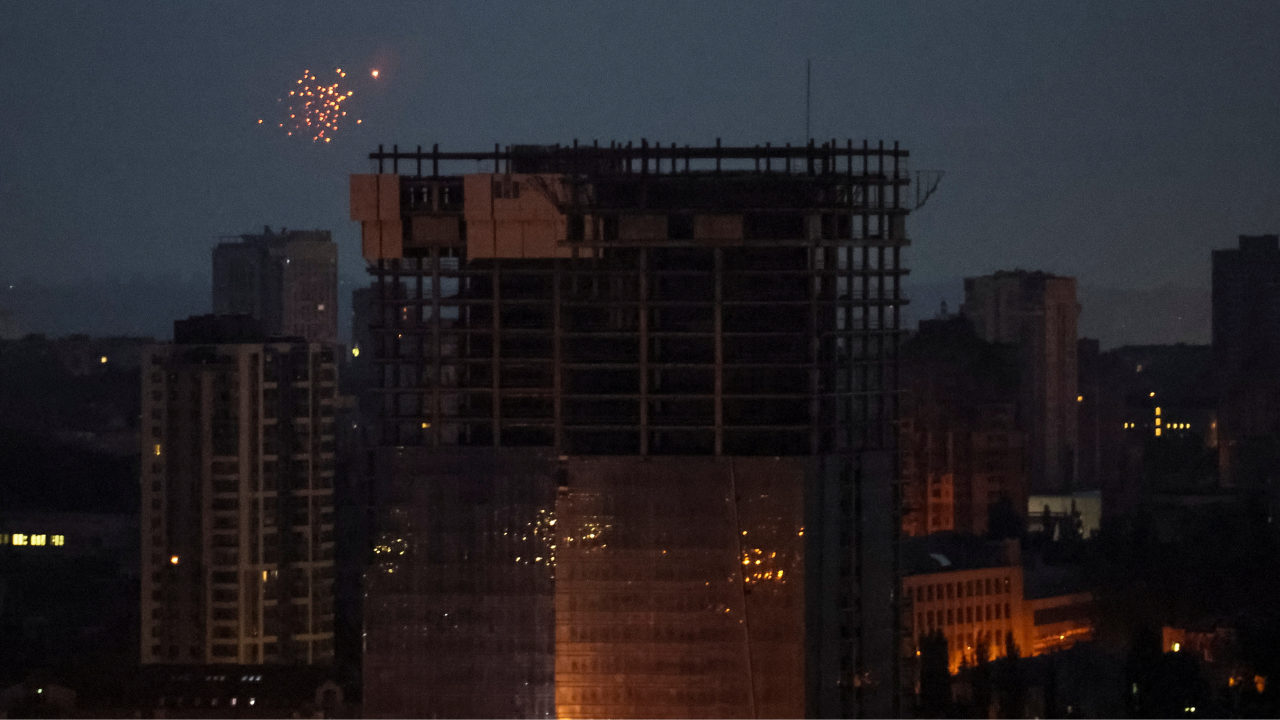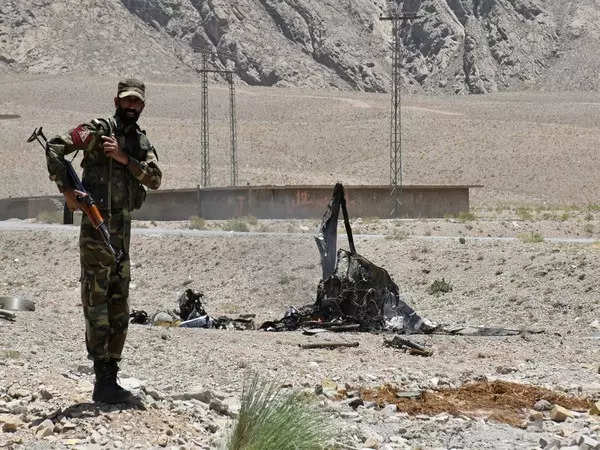US Embarrassed After 21-Year-Old Arrested in Classified Documents Leak
The Biden administration is going to have a hard time explaining how the biggest US intelligence leak in a decade may have been committed by a 21-year-old airman whose role - "cyber transport systems journeyman" - required a high-school degree, a dri

The Biden administration is going to have a hard time explaining how the biggest US intelligence leak in a decade may have been committed by a 21-year-old airman whose role - "cyber transport systems journeyman" - required a high-school degree, a driver's license and up to 18 months of on-the-job-training.
The FBI arrested Jack Teixeira, of Dighton, Massachusetts, on Thursday, with the promise of a swift arraignment on Friday. Attorney General Merrick Garland said he was being held in connection with the "unauthorized removal, retention and transmission of classified national defense information."
As Pentagon jobs go, Teixeira's was pretty junior. An Air Force job description says workers like him "keep our communications systems up and running and play an integral role in our continuing success." He joined the Air National Guard in 2019, according to his service record.
That will raise the inevitable question: If a low-level Defense Department employee has access to such sensitive information, who doesn't?
"It's outrageous that these kinds of documents would be shared with an insignificant national guard unit," said Dennis Wilder, former senior editor of the President's Daily Brief. "This is a real Pentagon problem."
While President Joe Biden sought to downplay the severity of the leak, experts and former officials said it was a massive exposure that highlighted not only up-to-the-minute assessments of the Ukraine war, but also how the US collects intelligence around the world.
One official from an allied nation described how telephones immediately began ringing when a Washington Post report landed Thursday night describing the leaker as a military buff who started sharing the documents with online friends and acquaintances - some of them just teenagers - in an apparent bid to stave off isolation during the coronavirus pandemic.
It was, the person said, a fresh reminder of a question that's dogged the US after a series of intelligence failures - whether the most powerful nation on Earth is able to keep a secret. To address those concerns, Defense Secretary Lloyd Austin announced Thursday that he'd ordered a review of the Pentagon's "intelligence access, accountability and control procedures" to make sure a leak like that never happens again.
Regardless of the motivation, one flaw exposed by the disclosure is the sheer number of people who are privy to US secrets. As of October 2019, nearly three million people had permission to access classified documents, according to the National Counterintelligence and Security Center.
That oversharing has its roots in efforts to expand the sharing of information following after September 11. The idea was that a broader dissemination of intelligence might help prevent another attack on US soil.
"It's clear that we have a problem of a huge number of people with access to classified information," said Holden Triplett, founder of Trenchcoat Advisors and a former FBI counterintelligence official in Moscow and Beijing. "I don't think the US has made as much progress as it could controlling who it gives what to and when."
The unit where Teixeira is assigned sheds light on his proximity to Top Secret information. Based on Cape Cod, the 102nd Intelligence Wing provides "worldwide precision intelligence and command and control along with trained and experienced airmen for expeditionary combat support and homeland security," its website says.
Teixeira was with the unit on a one-year active duty deployment that started last September, according to a US official following the case who asked not to be identified discussing private information.
His job was network defense and he held a classification known as Top Secret/Sensitive Compartmented Information, the official said.
That's one of the highest classifications and involves extensive vetting. It would have given Teixeira access to information that's defined as "concerning or derived from intelligence sources, methods or analytical processes that is required to be protected within formal access control systems established" by the Office of the Director of National Intelligence, according to the office.
The Justice Department didn't immediately respond on Thursday evening when asked if he had a lawyer. Biden was briefed on Teixeira's arrest, according to the White House.
"It's important to understand that we do have stringent guidelines in place," said Brigadier General Pat Ryder, a Defense Department spokesman. "This was a deliberate, criminal act, a violation of those guidelines."
So far, the public response from other nations has been relatively muted, suggesting that they may have grown inured to such leaks after past unauthorized disclosures, such as the one carried out by Edward Snowden in 2013 that the US spied on some of its closest allies.
The intelligence community "will be working to reassure partners that their information is protected," said Emily Harding, deputy director with the International Security Program at the Center for Strategic and International Studies and a former Central Intelligence Agency analyst. "But the US's longstanding intelligence partnerships are hardy and resilient and have withstood far worse."
That may be true. Yet officials acknowledged that some details in the report - such as reports of divisions among Russian military commanders - could help Moscow to identify the source of its own intelligence breaches.
There were countless smaller revelations too - like the US assessment of China's hypersonic missile program - as well as details on US collection categories and methods that foreign intelligence services, both friend and foe, may find useful.
"I've had to take classes or get certified, I think every year, for as far back as I can remember on handling of classified material," said retired Lieutenant General Ben Hodges, a former commander of US Army Europe. "Frankly, it's embarrassing."



































![Safari Thorium Neo 8-Wheel Luggage Set Trolley Bags (Set of 3) at just Rs. 5,599 [MRP 29,100]](https://savefree.in/uploads/images/202409/image_870x580_66f63845060f0.webp?#)












![Handmade Brown Mango Wood Chopping Board At just Rs. 89 [MRP 599]](http://savefree.in/uploads/images/202303/image_870x580_641bf7e9c2206.jpg?#)



